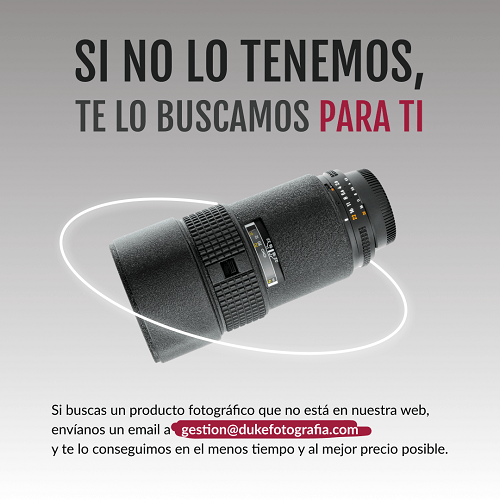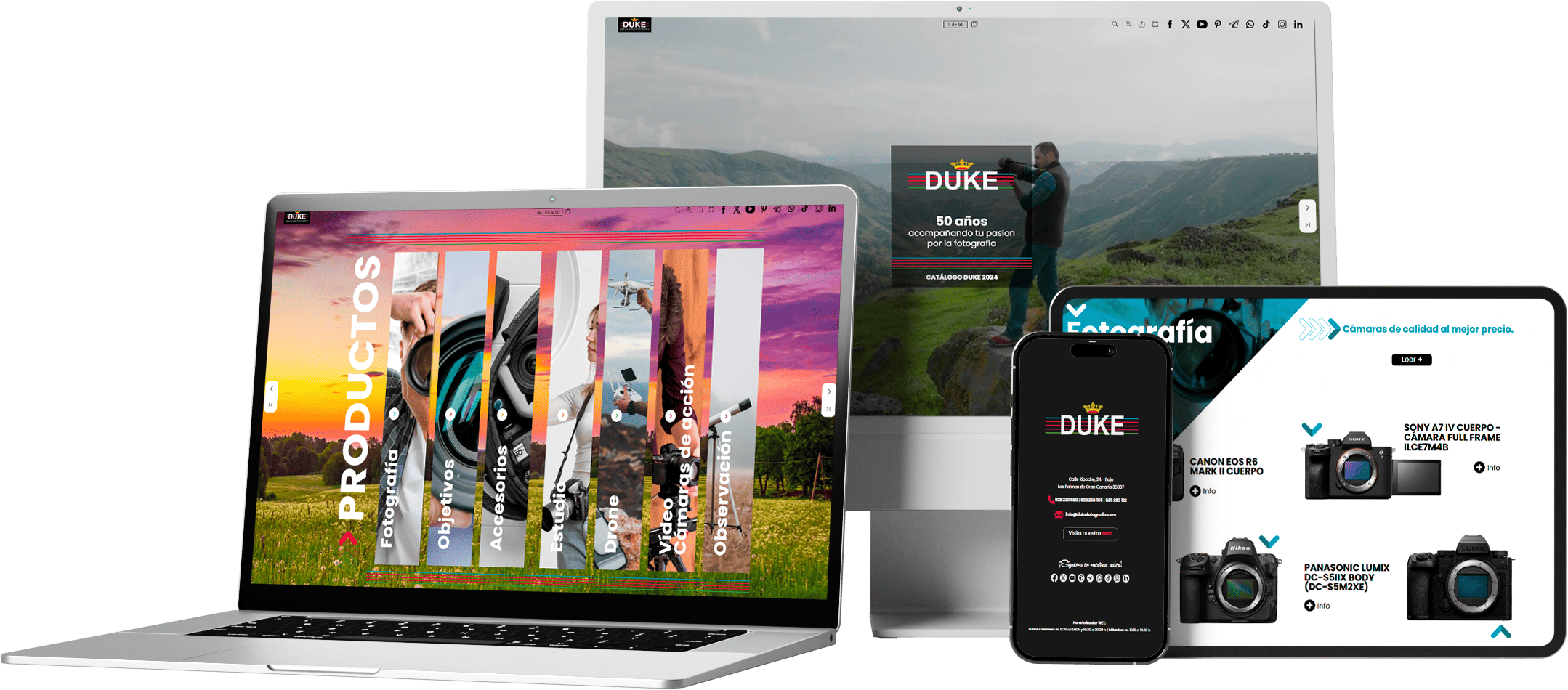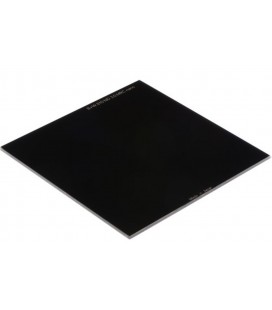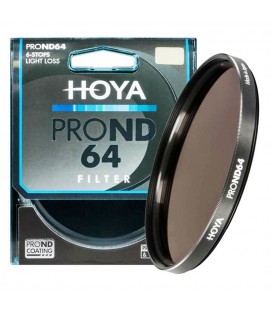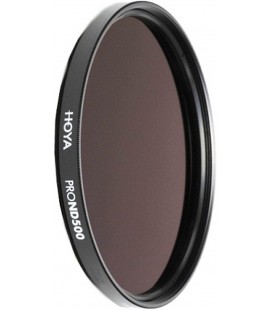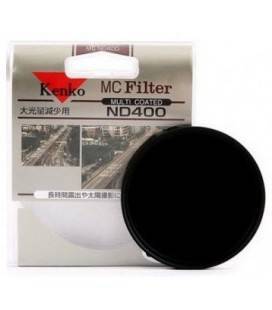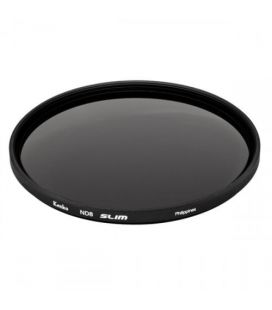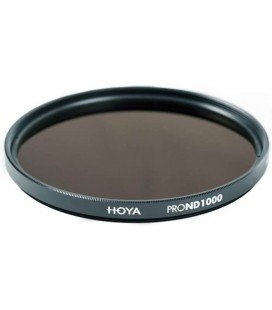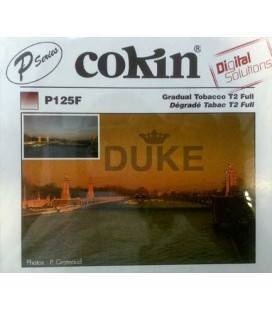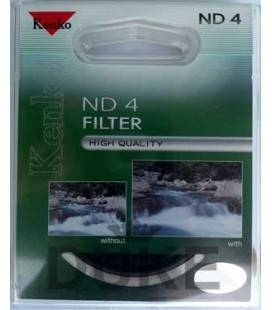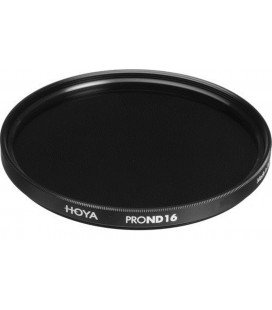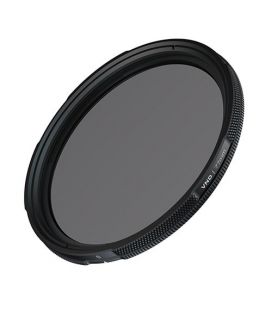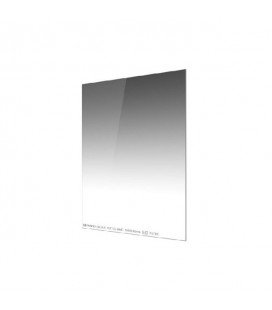
Catalog
ND Density Neutral
-
B+W 100 X 100MM ND 810 3.0 XS-PRO MRC NANO
B+W 100 X 100MM ND 810 3.0 XS-PRO MRC NANO
For filter holder B + W 100mm...
149,40€ 249,00€ -40%Reduced price!For filter holder B + W 100mm Filter factor 1,000x, 10 stops Darkens the entire image Allows you to reduce the shutter speed Allows wider opening Multidrug resistant coating MRC Nano coating Schott glass construction Metal case
-
HOYA FILTER PRO 67MM ND64
HOYA FILTER PRO 67MM ND64
Dark neutral density filter with filter factor 64 (6 stops) Gray filter...
49,68€ 69,00€ -28%Reduced price!Dark neutral density filter with filter factor 64 (6 stops) Gray filter that has no effect on color balance thanks to Hoya's ACCU-ND technology ACCU-ND metallic coating to minimize glare on filter surfaces, reducing flare and ghosting Allows you to use slow shutter speeds to record movement on subjects such as waterfalls, clouds, cars, etc....

-
HOYA FILTER PRO 82MM ND64
HOYA FILTER PRO 82MM ND64
HOYA ND64 Neutral Gray Filter Loss of 6 stops of brightness Diameter...
91,35€ 105,00€ -13%Reduced price!HOYA ND64 Neutral Gray Filter Loss of 6 stops of brightness Diameter 82mm Slim filter mount to avoid vignetting with wide angle lenses (filter cover can be attached) - knurled mount, for non-slip attachment and removal
-
HOLE PRO ND500 82MM FILTER
HOLE PRO ND500 82MM FILTER
Neutral Density Filter Reduce exposure by 9 stops Darkens the...
73,95€ 85,00€ -13%Reduced price!Neutral Density Filter Reduce exposure by 9 stops Darkens the entire image Greater control over exposure settings Allows you to reduce the shutter speed Allows wider opening Optical glass construction Front filter ring without thread
-
-
-
HOLE NEUTRAL FILTER GREY PRO ND1000 82MM
HOLE NEUTRAL FILTER GREY PRO ND1000 82MM
The ND 1000x PRO filters are optimized for taking pictures and videos taken...
68,73€ 79,00€ -13%Reduced price!The ND 1000x PRO filters are optimized for taking pictures and videos taken with digital cameras. The absorption rate equals 10 stops. This very high absorption rate makes them the ideal solution for shooting solar eclipses and sunspots They also find useful applications in creative shooting The particular processing of the optical...

-
COKIN FILTER DEGRADED TOBACCO SERIES P125F T2
COKIN FILTER DEGRADED TOBACCO SERIES P125F T2
11,50€ 23,00€ -50%Reduced price! -
KENKO FILTER 72MM HQ NDX4
KENKO FILTER 72MM HQ NDX4
In high light conditions, such as the sun on snow or the beach, or when using...
20,30€ 29,00€ -30%Reduced price!In high light conditions, such as the sun on snow or the beach, or when using a video camera, ND filters are recommended.
-
HOLE NEUTRAL FILTER GREY PRO ND16 62MM
HOLE NEUTRAL FILTER GREY PRO ND16 62MM
PRO ND 16x (Neutral Density) filters are optimized for taking pictures and...
34,80€ 58,00€ -40%Reduced price!PRO ND 16x (Neutral Density) filters are optimized for taking pictures and videos taken with digital cameras. The absorption rate is 4 stops. They are particularly suitable for landscape photos (especially in the presence of watercourses and waterfalls), as they accept working with long shutter speeds They also find useful applications in...
-
LEE FILTRO ELEMENTS VND 6-9 STOPS 77MM
LEE FILTRO ELEMENTS VND 6-9 STOPS 77MM
277,53€ 319,00€ -13%Reduced price! -
BENRO FILTER MASTER GND4 (0.6) DEGRADED SOFT
BENRO FILTER MASTER GND4 (0.6) DEGRADED SOFT
Neutral density crystal filter 4x4"...
120,78€ 138,83€ -13%Reduced price!Neutral density crystal filter 4x4" (100x100mm) and degraded 4x6" (100x150mm). Schott high quality optical glass. WMC coating. Resistant to scratches, water and oil.
What are Neutral Density ND filters for?
There are many situations for the photographer where we have plenty of light. An example can be a long daytime exposure, shallow field photographs and the photography of sunrise and sunset. In these cases we always have more light and here enter these filters. Filters are what they do is reduce the light available in the scene, so we can lengthen our exposures or have large openings to achieve the desired effect.
How to choose the best ND filter?
These filters are normally marked by a value, which tells us how much light in exposure value is reducing. For example, the ND2 reduces 1 light pass or 1 EV, the ND4 reduces 2EV, and the ND1000 Reduces 10EV. Depending on what we are looking for we will use the right one, we also have the NDX, which are variable neutral density filters where we will have several filters in one.
All our filters are available in standard diameters or with the necessary adapters.
Frequently Asked Questions about ND Filters
Which ND filter to buy?
There are three main characteristics that differentiate ND filters; their shape factor (circular or rectangular), material (glass or resin) and pitch restrictions (fixed or variable). Rectangular filters, although requiring a higher investment, are compatible with a larger number of lenses. Glass filters, although more fragile, tend to offer higher quality. And variable filters, although more convenient, tend to offer less quality for a given passage of light than their fixed equivalent.
What is an ND filter?
A neutral density filter is a filter that reduces the amount of light that enters your camera. There are filters with different step reductions. You can find filters from ND4 (little light reduction) to ND1000 (a lot of light reduction). These filters allow you to take pictures with daylight effects such as "timelapse" or "fog effect" on water.
What is an ND filter for?
A neutral density filter reduces the amount of light that enters your camera allowing you to shoot daylight effects such as "foggy water" shots or timelapses in sunlight. If you want to get started we recommend a variable density filter and that you consult the complete guide in our blog.
How to use a variable ND filter?
In general, a variable neutral density filter has a certain number of pass restrictions. Once the filter is placed in front of your lens, you can change the step restrictions by turning the filter. At Duke we have inexpensive options from 2 to 8 steps. If you can invest in a higher quality filter we recommend the HOYA brand.



